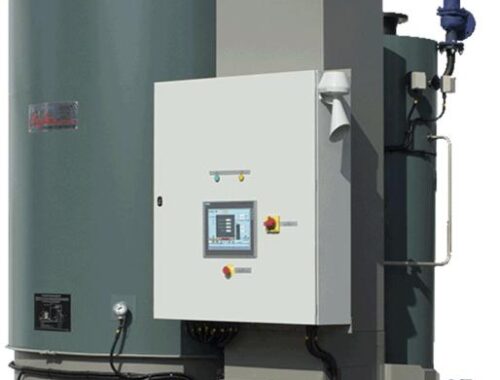Top-Tier Steam Boiler Manufacturing for Heavy Industry
In heavy industry steel, petrochemicals, pulp and paper, power generation unfailing, high-pressure steam is essential to maintain lines safe and productive. Selecting an Industrial Steam boiler manufacturer from a crowded worldwide sector significantly affects worker safety, regulatory compliance, and energy usage. Elite manufacturers develop systems that withstand corrosive fuels and demanding duty cycles by combining metallurgy, computer design, and digital control. Benefits every procurement manager desires when capital expenditures must span decades: their boilers provide continuous output, accept future retrofits, and shrink total cost of ownership.
Solid boiler design guidelines
Premier manufacturers engineer pressure vessels to ASME Section I or EN 12952 requirements, then exceed baseline factors of safety. Finite-element analysis guarantees shell thickness and ligament spacing by mapping localized stresses at tube-sheet joints, furnace turns, and manway doors, therefore allowing repeated thermal cycling. To prevent fatigue cracking, designers also replicate transitory upsets cold starts, load fluctuations, fuel composition changes. Tens of thousands of running hours provide a geometry that maintains roundness and weld integrity.
Modern materials selection techniques
Cutting-edge boilers run on duplex stainless, Inconel overlays when temperatures reach 550 °C, and chromium-molybdenum steels. Better than historic carbon steel these alloys resist creep, hydrogen attack, and chloride stress corrosion. Electroslag-refined 9Cr materials prevent impurity segregation and grain development, hence extending tube life, for supercritical service. On the water side, ferritic-austenitic mixes limit caustic gouging, hence lowering chemical treatment costs; electropolished internals prevent scaling.
Welding in precision fabrication

Robotic GTAW heads, five-axis laser cutters, and automated plate rollers create consistent seams with little dilution and low heat-affected zones. Before the hydrotest, advanced non-destructive tests include radiography, magnetic flux leakage, and phased-array ultrasonic check joint soundness. Integrated production execution systems document every weld pass, filler metal lot, and welder qualification to produce traceable digital passports accelerating root-cause analysis or retrofits decades later.
Integrated procedures for assurance of quality
Top-tier stores integrate quality right at every station. Long before a final inspection, statistical process control tests drill positioning accuracy, tube concentricity, and plate flatness. Combustion assemblies run factory fire-up on natural gas or light oil so engineers may adjust flame geometry, emissions, and turndown ratio prior to delivery. Third-party auditors see hydrostatic tests, providing end users confidence that paperwork reflects reality. ISO 9001 dashboards highlight deviations promptly.
Ensuring equipment from an Industrial Steam boiler manufacturer dedicated to strict design, premium materials, precision craftsmanship, complete quality assurance, and lifetime support guarantees heavy-industry facilities enjoy safer operations, smaller carbon footprints, and predictable operating budgets over the boiler’s multidecade lifespan.

